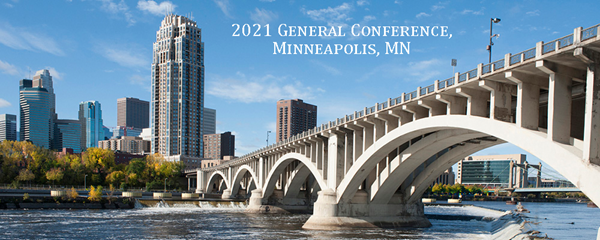Much of the discussion about possibilities for General Conference 2021 is whether the event could become "virtual." However, I would like to suggest that most Americans' understanding of a "virtual" event do not fit with what a technology-assisted GC2021 would actually look like. A much better way of thinking about that possibility is to talk about a "distributed" GC2021.
Your support of The General Administration Fund apportionment implements trustworthy administrative oversight like the General Conference sessions.
For those in the United States, the term "virtual" connotes Zoom meetings or other online events where each individual participates from their own home, office, or home office. Virtual schooling, virtual church, virtual work have all operated on this model of individual participation in technology-mediated online meetings, where each person has an internet device and is in a separate location from others.
The problem with this model in many parts of the world is that individuals do not have reliable, high-bandwidth access to the Internet in their homes or even offices. Thus, a General Conference delegate from Mulungwishi, DR Congo is unlikely to be able to Zoom into General Conference while sitting on a couch in their living room, even if a delegate from Memphis, Tennessee could.
This does not, however, mean that the Internet is completely unavailable in DR Congo or other developing nations. In almost every country, the Internet is accessible somewhere, usually in urban areas and/or hotels and conference centers that cater to global business travelers and NGOs.
Thus, for delegates from such countries to participate in an online General Conference would probably mean gathering these delegates at a central point or central points, where they could then access the meeting through the reliable internet of whatever facility in which they were meeting. Several African commentators suggest such a possibility in the UMNS piece "Should General Conference go virtual?"
Thus, an online General Conference would not be virtual in the sense of each delegate accessing the event individually; it would be distributed in the sense of there being multiple sites at which General Conference delegates gather, with each site linked through technology, but not necessarily each delegate on an individual internet device.
Such a distributed model of General Conference would probably be necessary to ensure access for delegates from many countries in Africa and perhaps parts of the Philippines. It also probably makes some issues like translation a bit easier, or at least no harder. Nevertheless, it also raises some issues and challenges.
First, it is technologically more complicated to ensure participation if not every delegate has a personal device to access the internet.
Second, there are logistical procedural challenges to having delegates from multiple different group locations participate in an online event.
Third, there are issues of relationship building and trust.
Thus, while holding a distributed General Conference might be a logistical necessity to ensure equitable access to an online event, it is by no means an easy or simple solution, and it poses a variety of challenges. Therefore, it is entirely possible that the Technology Study Team or the Commission on General Conference itself might conclude that an online General Conference is simple not feasible and, despite the challenges associated with not having a General Conference, conclude that further delaying General Conference is still the best option.
excerpt from a blog by Dr. David W. Scott, UM & Global blogmaster, Mission Theologian, General Board of Global Ministries.
The opinions and analysis expressed here are Dr. Scott's own and do not reflect in any way the official position of Global Ministries.
One of seven apportioned giving opportunities of The United Methodist Church, the General Administration Fund implements trustworthy administrative oversight, supports the legislative processes of the church and curates The United Methodist Church’s rich history. Please encourage your leaders and congregations to support the General Administration Fund apportionment at 100 percent.





